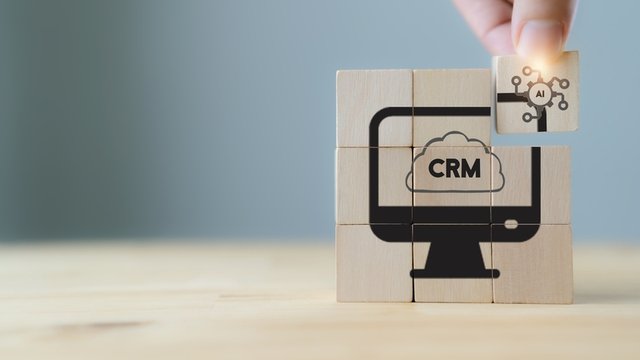

In an increasingly digital and connected environment, companies striving to remain competitive must effectively manage relationships with their customers. Customer Relationship Management (CRM) technology is a crucial tool in this endeavor, capable of improving marketing ROI by 43% and boosting sales revenue and customer satisfaction by 37%, according to Salesforce data. Its importance is such that in our master in Marketing, we address the management of CRM tools so that you can lead the digital transformation process of any company or launch your own start up.
CRM stands for Customer Relationship Management. It is a technology that facilitates the management of the sales, marketing and customer service areas, keeping a record of all contact points and interactions with leads, users and customers.
In fact, more advanced CRMs not only collect and track basic lead information but can also direct leads to the right sales reps or record their interactions with customer service or help desk teams to build a more complete profile.
There are various types of CRM systems available, categorised by their source code and deployment method:
This software manages customer relationships broadly, providing insights into customer satisfaction and feedback on the company's products or services. It aids in designing strategies for customer engagement and interaction throughout different stages of the sales cycle.
Centralises all customer interactions across various communication channels, improving the relationship with customers and identifying high-potential leads. It ensures seamless communication between service or sales teams and customers.
Collects and analyses extensive data from past, present, and prospective customers. This software helps classify customers into different groups, create behavior-based profiles, and identify preferences within the sales cycle. By detecting trends, businesses can understand customer needs better and define which products or services are most appealing.
In essence, a CRM provides a global and centralised platform to store customer and user information. Collect associations, records, and detailed reports to identify leads and track marketing, sales, and customer service actions.
In the area of marketing, for example, CRM provides a general overview of the target audience, allows you to focus campaigns on specific segments based on their profile or purchase history, as well as identify trends and patterns of audience behaviour to develop more effective strategies. and spot prospects.
In the sales area, CRM allows you to simplify and automate different business processes to boost sales and convert leads into customers. This software provides real-time customer information so sales reps can use it during interaction, monitors the sales cycle so they know if a lead is close to closing a deal, and allows custom promotions to be designed based on customer profiles. users.
In customer service, this technology helps the company stay in touch with its customers, automating the sending of emails to update them on product launches or promotions. By collecting customers' interests, preferences and purchase history, it helps companies tailor their services and build stronger customer relationships, which improves customer satisfaction and increases loyalty.
Remember that if you are interested in everything related to the latest methodologies and technological tools applied to the business world, you can also study our Bachelor's Degree in Marketing in Valencia.